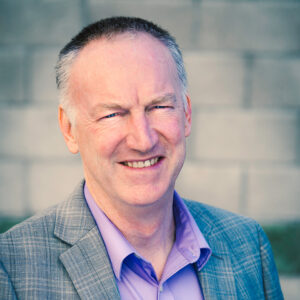Leadership Begins with Listening
Leadership begins with listening. When I teach on Christian leadership—whether it is with seminary students or at speaking engagements among laypeople—I tend to start the same way no matter what the topic. I make sure that when people walk into the room, they will find the same message written in big red letters either on the whiteboard or on a PowerPoint screen. It says simply, “Leadership begins with listening.”
This is not the stereotype of leadership. If you were to gather, say, a group of sixth graders and ask them what it means to be a leader, they might well decide that “a leader is someone who tells people what to do.” It is a good definition for how our culture understands leadership (i.e., it reflects our mental model of leadership). We tend to think of leaders as being people who speak. I of all people need to recognize how I have contributed to that stereotype, since I wrote a book about what Christian leaders should say when they speak.2 So I will grant that speaking is important.
But something comes before speaking. Leadership begins with listening. I say this phrase perhaps fifty or more times during a ten-week class. Often my initial response to a student question will be to say, “Where do we start? Leadership begins with listening.” Then we will talk through the ways leaders must listen before they can speak or act.
I have apparently done this so many times that it has become part of my identity as a professor. A while back, I ran into a former student in an airport, far from home. He obviously recognized me but did not immediately greet me by name. Instead, he walked straight up to me, pointed at me, and said, “Leadership begins with listening.” Everything that we do as Christian leaders flows from there.
The primary reason we listen to our people is that they deserve to be heard because they are made in the image of God. They bear that image in the world, and the work we do as Christian leaders must honor the spark of God embedded in each person we encounter. But there is another reason to listen, one related directly to recalibrating the church.
We listen so that we will be transformed. Before we can recalibrate the church, we must ourselves be recalibrated. We Christian leaders must so immerse ourselves in the needs of the people entrusted to our care that they change us. The daily difficulties of our people pull us out of our own selfish pursuits and remind us anew that we in the church exist to serve the people whom God entrusts to us—to love those neighbors as we love ourselves. We ourselves must be transformed before we can ask other people to change. Indeed, we do not lead on behalf of our own interests and agendas. We listen in order to be transformed by what we hear. Innovation begins with transformative listening—with listening that will transform the hearers.
 Dr. Scott Cormode is a senior fellow at the Max De Pree Center for Leadership and is the Hugh De Pree Associate Professor of Leadership Development at Fuller Seminary. The Hugh De Pree faculty chair was established by the family of the late Hugh De Pree, an accomplished leader and former CEO of Herman Miller, Inc., and brother of Max De Pree.
Dr. Scott Cormode is a senior fellow at the Max De Pree Center for Leadership and is the Hugh De Pree Associate Professor of Leadership Development at Fuller Seminary. The Hugh De Pree faculty chair was established by the family of the late Hugh De Pree, an accomplished leader and former CEO of Herman Miller, Inc., and brother of Max De Pree.

Scott Cormode
Hugh De Pree Professor of Leadership, Senior Fellow
Senior Fellow De Pree Center Hugh De Pree Associate Professor of Leadership Development Fuller Theological Seminary Scott Cormode, Ph.D., is a senior fellow at the Max De Pree Center for Leadership and is the Hugh De Pree Associate Pr...


